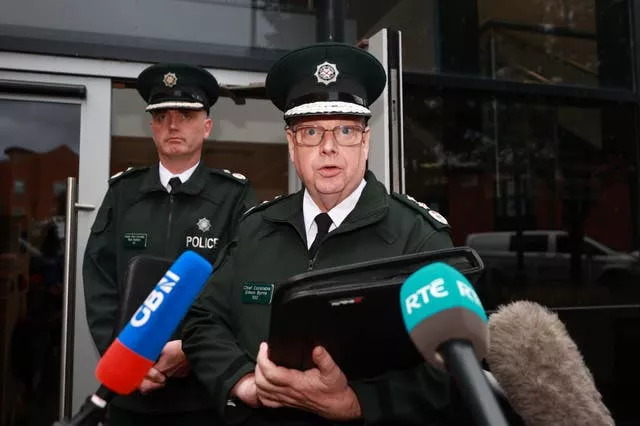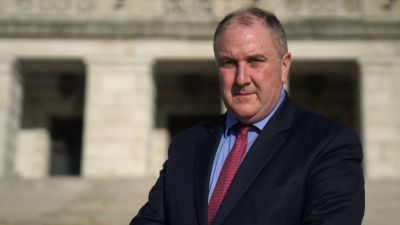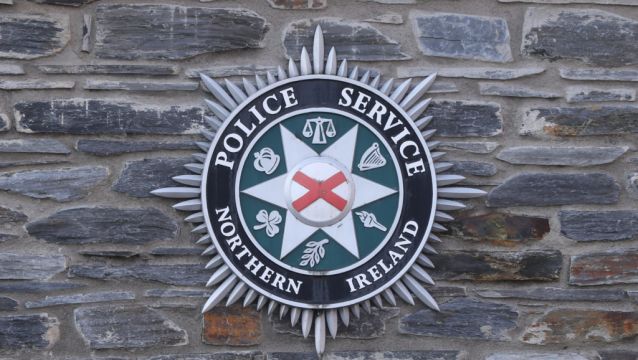The head of the organisation representing Catholic PSNI officers says he has advised some of them to bring personal protection weapons to Mass in the aftermath of the police data breach.
Representatives from various policing organisations gave evidence to the Northern Ireland Affairs committee on the security impact of the PSNI data breach that occurred last month.
Personal details relating to over 10,000 PSNI officers and staff were mistakenly released in response to an innocuous freedom of information request.

The leaked data included initials, departments and locations for all currently-serving officers in the organisation, with the then-chief constable Simon Byrne revealing that this information was in the hands of dissident republicans.
Superintendent Gerry Murray is the chairperson of the Catholic Police Guild of Northern Ireland, a group that represents catholic officers in the PSNI.
Mr Murray said Catholic officers were more likely to keep their professions a secret from their families and communities, and the potential for identification caused some members to ask if they should carry protection weapons when attending mass.
“We have had officers, resigning, going from the organisation. Our members are frightened, scared, have no idea what tomorrow will bring for them,” he told the committee.
We're currently hearing from Tracy Godfrey @nipsa, Liam Kelly @PoliceFedforNI, Detective Chief Superintendent Anthony McNally from the Superintendents' Association of NI, and Superintendent Gerry Murray @CatholicGuildNi.
📺Watch here now: https://t.co/DFqgEGOUBF— Northern Ireland Affairs Committee (@CommonsNIAC) September 5, 2023
“And I have incidents where young Catholic officers are asking me: do they carry their personal protection weapon when they go to Mass?”
He added: “That has happened, and the advice I’ve given: yes, you do.
“Because the idea is that they should feel safe while entering the Catholic Church and also leaving the Catholic Church, and there’s no better way, the issue of the personal protection weapon is for that, for personal protection.”
Mr Murray said that the security pressure stemming from the data breach, combined with budgetary constraints, would limit the PSNI’s ability to recruit Catholic officers.
He said: “I would fear, given the length of service I have been in this organisation, that we will have a major difficulty. Probably we will survive with regards to retention, but with regards to recruitment, if you look at the last census in 2021, there it’s something like 45 or 47 per cent Catholic.
“Well, that should be the bar which the police service of Northern Ireland should be adhering to.”
He added: “You can see actually one of our recruiting posters where they have put on it ‘do not join the PSNI’. Already there is this propaganda starting, and we’re starting from zero now, there is no recruitment. There’s no budget for recruitment.”
Liam Kelly, chairman of the Police Federation of Northern Ireland (PFNI) that represents more than 6,000 rank and file PSNI officers, said their members felt betrayed by their information being leaked from the inside.
“Despite 25 years on from the Good Friday Agreement, we still find that we’re having to police in Northern Ireland against the backdrop of a severe terrorist threat, both on- and off-duty,” he said.
“So you ask what the impact has been of the data breach from my members and from my own perspective, we’re appalled, and we’re shocked, we’re dismayed, and we’re scared about the implications about what has happened.
“Because the reality around this, our officers, from whatever persuasion, take their personal security very seriously. And they feel betrayed, because it was their employer who has put this information into the public domain.”
Mr Kelly said some officers were already in the public domain, but those who had kept their identity hidden now felt vulnerable at the risk of identification.
“We also have a number of officers, whether that be because of their community background or because of the role they’re performing in PSNI, whether that be intelligence, surveillance, are feeling very vulnerable around this,” he said.
“Again, we’re in a uniquely hazardous position as police officers in Northern Ireland, and it takes a lot of courage to be a police officer in Northern Ireland.
“This data breach has not helped. And really, it’s about what happens next to try and build, not only public confidence, but officer confidence, that the organisation has their back.”

Following the budget for Northern Ireland that was set by Secretary of State Chris Heaton-Harris in the absence of a Stormont executive, the PSNI was said to be facing a funding gap of £141 million.
DCS Anthony McNally, president of the Police Superintendents’ Association of Northern Ireland (SANI), said continuing fallout from the data breach would put further financial strain on the force.
“The reason why we’re not recruiting is because we don’t have a budget to recruit. We are now going to spend … millions, tens of millions of pounds, to fix the challenges of this data breach,” he said.
He added: “There is a strong request from officers and staff for personal security measures, of which the details are yet to be worked out, but that will run to tens of millions of pounds.

“And then there’s litigation, there are people who quite rightly feel that their information has been put into the public domain against the law, frankly, and they will seek the remuneration for that.
“So that creates a huge challenge for us in terms of how can we recruit, but not only then how can we recruit, but how can we continue to sustain the current delivery model.”
Former PSNI Chief Constable Simon Byrne was due to give evidence to the committee, but did not, following his resignation on Monday in response to a string of controversies, including the data breach and consternation around the discipline of two junior officers.







